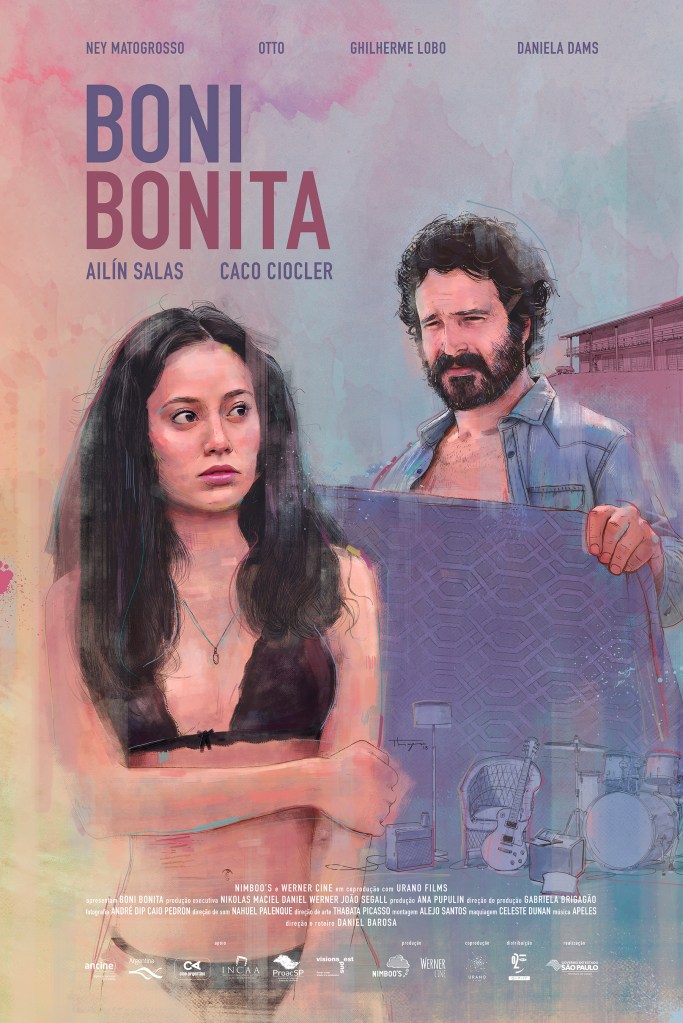Representation matters.
En el Séptimo Día (On the Seventh Day) tells the story of José (Fernando Cardona) a Mexican immigrant working and living in Sunset Park, Brooklyn. He lives in an overcrowded apartment with his friends. Every day they work at a local restaurant, washing dishes, delivering food and bussing tables. Others sell cotton candy on the street, work construction jobs, etc. On the seventh day, Sunday, they’re free to do what they love the most: play soccer. The story follows José and his friends during one week which starts with a semi-final tournament and ends with the much anticipated final game. The problem is José’s boss, who considers him the most valued employee among the immigrant workers at the restaurant, needs him to work on Sunday for a private event. But this means José, who is also the most valued player on his soccer team, will have to miss the game. With each new day we are exposed to aspects of José’s life including his coworkers, his friends, the blue collar workers he meets on his delivery route as well as the pregnant wife waiting for him in Mexico. In the end, José has to chose between the work that feeds him and the joy that sustains him.



“I don’t see any other way. Either we get slaughtered or I get fired.” – José
En el Séptimo Día is a poignant drama about an underrepresented group of individuals who are an important part of the fabric of American society. This quiet film is about finding small joys in a life filled with endless work. You just don’t see stories about Hispanic immigrants. Perhaps first and second generation Latino Americans but not immigrants who are starting a new life in America. And in a time where ICE reigns and our nation is plagued with fear mongering, a humane story about Mexican immigrants adds some empathy and understanding where it was lacking before.
The film was written, produced and directed by Jim McKay, best known for his stories about average folks including Girls Town (1996), Our Song (2000) and Everyday People (2004). According to an interview on the Cinema Guild website, McKay’s inspiration for the film came from a variety of sources including his own work on Our Song and Everyday People, his wife’s documentary La Boda, and his own experience working in a restaurant alongside Mexician immigrant workers from the Yucatan. The biggest source was Mexican New York by Robert Smith, a book profiling a community of immigrants from Puebla, Mexico who had settled in Sunset Park, Brooklyn.
The majority of the cast members, including the star Fernando Cardona, are non-actors. McKay said, “the film is about Mexican immigrants and I was determined to make it with Mexican immigrants.” He sought out not only Mexicans but ones based in Sunset Park where the story takes place. However in the interview McKay makes it clear that the actors are playing characters and not themselves. The film was shot over 19 days in June and July of 2016 in Sunset Park, Park Slope and Gowanus in Brooklyn, NY. A few scenes were shot on a rainy day on October. McKay injects as much realism in his film which watches like a hybrid feature film/documentary.
The movie is primarily in Spanish with several conversations in English. It adds authenticity to the story. McKay and his team did a great job casting the variety of players especially Fernando Cardona who delivers a fine performance and is just captivating to watch on screen. I fell in love with this movie and its characters and was rooting on for José. I particularly enjoyed one scene when José is waiting outside a building where he’s going to make a delivery. He meets a blue collar worker who speaks Spanish and they chat about their mutual love for soccer. It’s a brilliant moment when commonality brings together two people from seemingly very different worlds.
En el Séptimo Día stole my heart. This is one you won’t want to miss.
En el Séptimo Día is showing in theaters across the country through August and September. Visit the Cinema Guild website for details.
Like this:
Like Loading...








